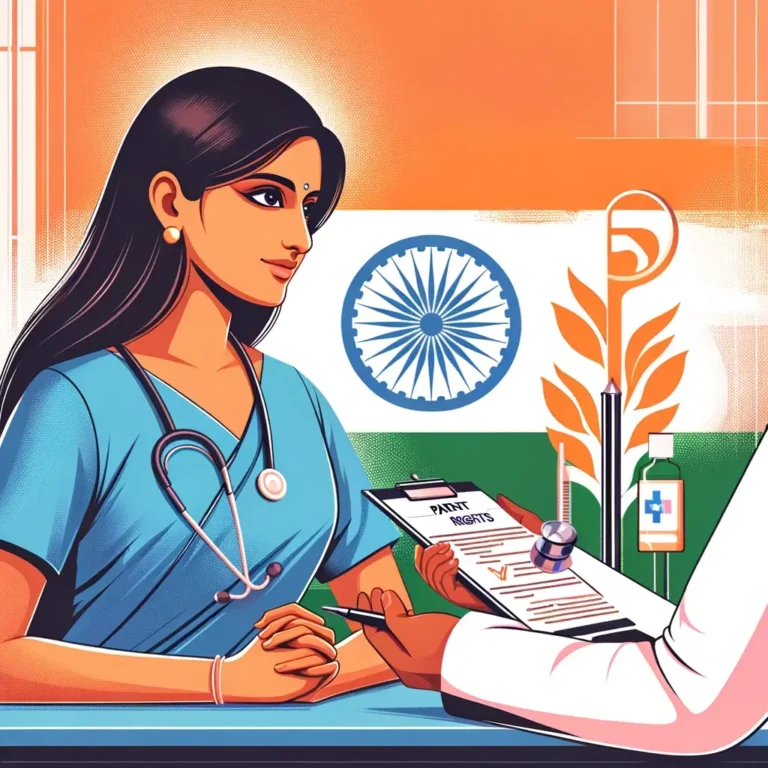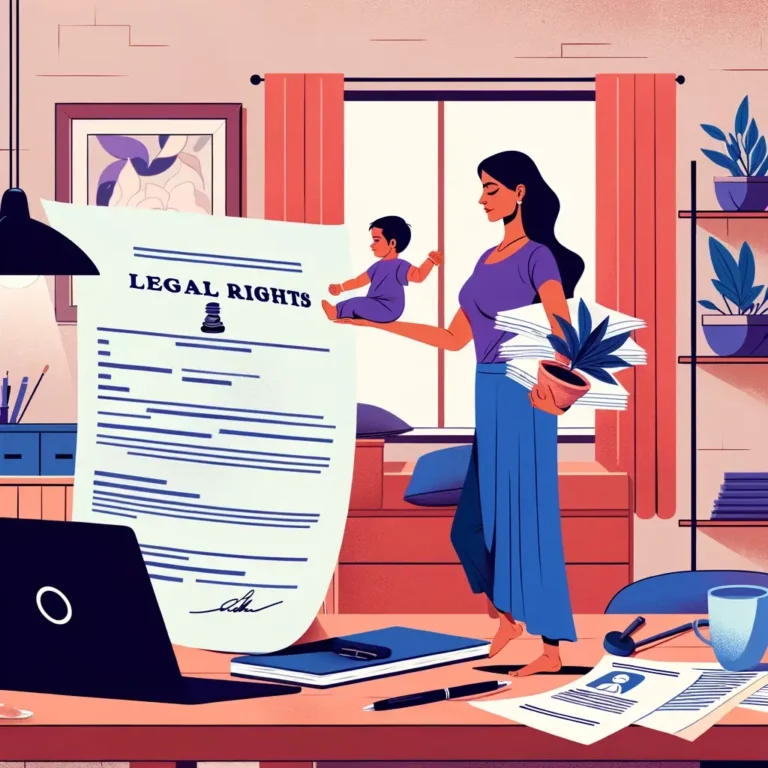Imagine waking up one morning to find a police officer at your door with a warrant. Your heart races as you realize you’re being accused of a crime you didn’t commit. The world suddenly feels overwhelming and the path ahead uncertain. How do you navigate the complex maze of a criminal trial in India? What are your rights? What should you expect at each stage?
Fear not. While the process can indeed be daunting, understanding the steps involved can provide some much-needed clarity and peace of mind. This guide will walk you through the criminal trial process in India, from the initial filing of a First Information Report (FIR) to the final judgment and sentencing. Let’s explain each phase, so you know what lies ahead and how to prepare for it. Whether you find yourself facing charges or simply want to understand the legal landscape, this article is here to guide you through every twist and turn of a criminal trial in India.
What to Expect During a Criminal Trial in India
1. Filing of FIR and Arrest
- First Information Report (FIR): The process begins when someone files an FIR with the police. This report contains details about the alleged crime.
- Investigation: The police then investigate the allegations mentioned in the FIR. They gather evidence, interview witnesses, and may arrest the accused if they find sufficient grounds.
- Arrest and Custody: If arrested, the accused is taken into custody and must be produced before a magistrate within 24 hours. The magistrate will decide whether to release the accused on bail or keep them in custody.
2. Chargesheet Filing
- Chargesheet: After completing the investigation, the police prepare a chargesheet, which is a formal document listing all charges against the accused. This is submitted to the court.
- Scrutiny of Chargesheet: The magistrate examines the chargesheet and decides whether there is enough evidence to proceed with the trial.
3. Framing of Charges
- Charges Framed: If the court finds sufficient grounds, it frames charges against the accused. The accused is formally informed of the charges and asked to plead guilty or not guilty.
- Plea: The accused can either plead guilty, in which case the court may pass a sentence, or plead not guilty, leading to the commencement of the trial.
4. Trial Begins
- Prosecution’s Case: The prosecution (government lawyers) presents their case first. They call witnesses and present evidence to prove the charges against the accused.
- Examination-in-Chief: The prosecution’s witnesses are first questioned by the prosecution.
- Cross-Examination: The defense lawyer then cross-examines the prosecution’s witnesses, challenging their statements and credibility.
5. Defense’s Case
- Defense Evidence: After the prosecution concludes, the defense presents its case. The defense may call witnesses and present evidence to refute the prosecution’s claims.
- Examination and Cross-Examination: The defense witnesses are first questioned by the defense lawyer and then cross-examined by the prosecution.
6. Arguments
- Final Arguments: Both the prosecution and defense present their final arguments. They summarize the evidence and attempt to convince the judge of their respective positions.
7. Judgment
- Judgment Day: After hearing both sides, the judge deliberates on the evidence and arguments presented. The judge then delivers the judgment, either acquitting or convicting the accused.
- Acquittal or Conviction: If acquitted, the accused is free to go. If convicted, the judge will set a date for the sentencing.
8. Sentencing
- Sentencing Hearing: If the accused is found guilty, a separate hearing is conducted to determine the appropriate punishment. The judge considers various factors like the nature of the crime, circumstances, and the accused’s background.
- Punishment: The judge then pronounces the sentence, which could range from fines and probation to imprisonment or even the death penalty in extreme cases.
9. Appeal
- Right to Appeal: Both the convicted person and the prosecution have the right to appeal the judgment to a higher court if they are dissatisfied with the decision.
- Appeal Process: The appeal must be filed within a specific timeframe, and the higher court reviews the case for any legal errors in the trial.
Key Points to Remember
- Legal Representation: Having a competent lawyer is crucial throughout the trial. They can guide you through each step and build a strong defense.
- Bail: The accused has the right to apply for bail at various stages. Bail allows temporary release from custody until the trial concludes.
- Fair Trial: Every accused has the right to a fair trial, which includes the presumption of innocence until proven guilty, the right to present a defense, and the right to appeal.
FAQ on :- What to Expect During a Criminal Trial in India
1. What is a criminal trial?
A criminal trial is a legal process where the court examines the evidence to determine whether the accused is guilty of the charges filed against them.
2. What is an FIR?
An FIR (First Information Report) is a written document prepared by the police when they receive information about the commission of a cognizable offense.
3. What happens after an FIR is filed?
After an FIR is filed, the police begin an investigation, which may include visiting the crime scene, collecting evidence, and interviewing witnesses.
4. Can I be arrested without an FIR?
No, an arrest generally follows the filing of an FIR, although in certain urgent situations, the police can arrest without an FIR.
5. What are my rights if I’m arrested?
You have the right to remain silent, the right to legal representation, and the right to be informed of the charges against you.
6. What is bail?
Bail is a legal procedure that allows an accused person to be released from custody, usually by depositing a sum of money as a guarantee for their appearance in court.
7. How is bail granted?
Bail can be granted by the police or the court, depending on the nature of the offense and other circumstances like the accused’s criminal history and likelihood of fleeing.
8. What is a chargesheet?
A chargesheet is a formal document prepared by the police after an investigation, listing the charges against the accused.
9. What happens during the framing of charges?
The court examines the chargesheet and frames charges if there is sufficient evidence to proceed. The accused is then asked to plead guilty or not guilty.
10. What is a plea?
A plea is the response given by the accused to the charges framed against them, either admitting guilt (guilty plea) or denying the charges (not guilty plea).
11. What happens if I plead guilty?
If you plead guilty, the court may immediately pass a sentence based on the severity of the offense and other relevant factors.
12. What happens if I plead not guilty?
If you plead not guilty, the trial begins, where both the prosecution and defense present their evidence and arguments.
13. What is the role of the prosecution?
The prosecution represents the state and is responsible for proving the charges against the accused beyond a reasonable doubt.
14. What is the role of the defense?
The defense represents the accused and aims to challenge the prosecution’s evidence, presenting counter-evidence and arguments to prove the accused’s innocence.
15. What is cross-examination?
Cross-examination is the questioning of a witness by the opposing party, aimed at testing the accuracy and credibility of the witness’s testimony.
16. What is evidence?
Evidence includes all materials presented in court to support the arguments, such as witness testimonies, documents, photographs, and physical objects.
17. What is a witness?
A witness is someone who gives testimony under oath in court about what they know or have observed regarding the case.
18. What happens during the prosecution’s case?
The prosecution presents its case by calling witnesses and submitting evidence to prove the accused’s guilt.
19. What happens during the defense’s case?
The defense presents its case by calling witnesses and submitting evidence to refute the prosecution’s claims and prove the accused’s innocence.
20. What are final arguments?
Final arguments are the concluding statements made by both the prosecution and defense, summarizing their cases and attempting to persuade the judge.
21. What is a judgment?
A judgment is the final decision made by the judge after considering all the evidence and arguments, determining the guilt or innocence of the accused.
22. What happens if I am acquitted?
If you are acquitted, it means you have been found not guilty of the charges and are free to go.
23. What happens if I am convicted?
If you are convicted, it means you have been found guilty, and the court will proceed to determine the appropriate sentence.
24. What is sentencing?
Sentencing is the process where the court decides the punishment for the convicted person, which could include fines, imprisonment, or other penalties.
25. Can I appeal a conviction?
Yes, both the convicted person and the prosecution have the right to appeal the judgment to a higher court if they are dissatisfied with the decision.
26. What is the appeal process?
The appeal process involves filing a petition to a higher court, which reviews the case for any legal errors made during the trial.
27. How long does a criminal trial take?
The duration of a criminal trial can vary widely depending on the complexity of the case, the number of witnesses, and the court’s schedule.
28. What is a public prosecutor?
A public prosecutor is a lawyer appointed by the government to prosecute criminal cases on behalf of the state.
29. What is legal aid?
Legal aid provides free legal assistance to those who cannot afford to hire a lawyer, ensuring access to justice for all.
30. What should I do to prepare for a trial?
To prepare for a trial, ensure you have a competent lawyer, gather all relevant documents and evidence, understand the charges against you, and remain in communication with your legal team.
















